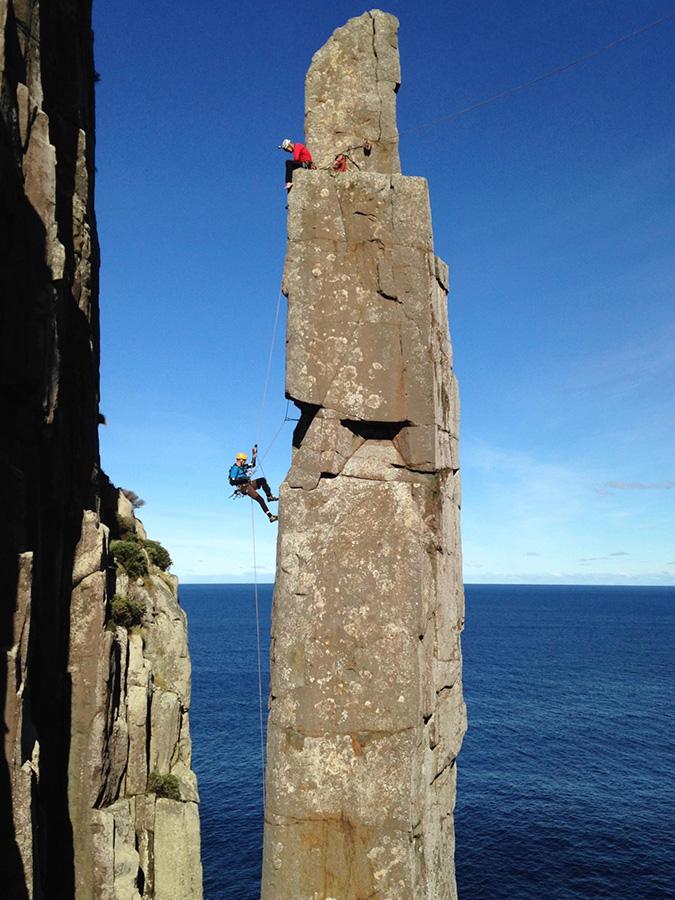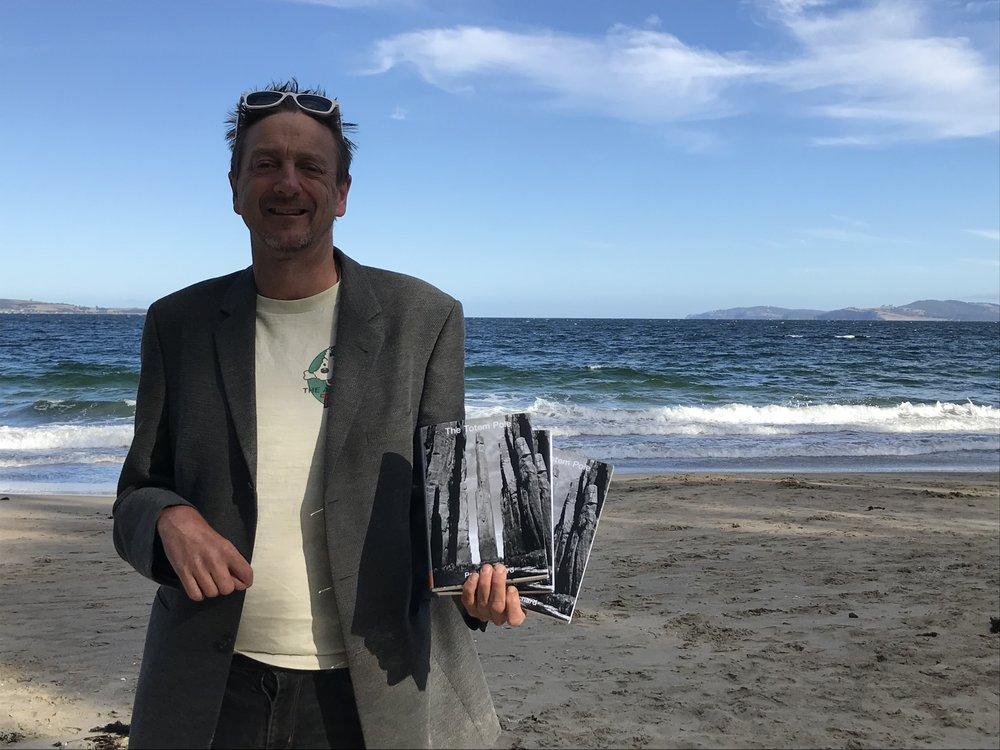The Mountain Path
Posted by Jeremy Windsor on May 13, 2022
With only a few weeks to go until our "Hill Walking and Mental Health Day", this post is dedicated to Paul Pritchard's new book - "The Mountain Path". Over the course of his writing career, Paul has brillantly documented the changing relationship he has with the outdoors. As a young man he excelled as a rock climber and mountaineer, however following a life threatening injury, his experience has become more reflective. In a recent talk about "The Mountain Path", Paul was quoted as saying, "This book is essentially about how being in the natural world and facing your fears can lead to emotional and spiritual growth...". Here's Tony Page to tell us more,
Many readers of this blog will know of Paul Pritchard. A leading rock climber in the 1980s, he subsequently moved towards mountaineering in the 1990s with expeditions to Baffin Island, Patagonia and the Himalaya. He is also an accomplished writer. His first book, Deep Play, is a collection of autobiographical climbing essays that won the 1997 Boardman Tasker Prize. The following year, when climbing the Totem Pole, a sea stack in Tasmania, he sustained a serious head injury that ended his career as a cutting-edge climber. The accident left him with right hemiplegia, post-traumatic epilepsy, emotional lability, nominal dysphasia and problems with long-term and working memory. His second book, Totem Pole is an account of the accident and of the beginning of his recovery. In 1999 it won both the Boardman Tasker Prize and the Banff Mountain Festival Grand Prize.

In a recent conversation with John Middendorf, Paul said, "So I think this particular book is less about improving my writing practice and more about personal growth and, dare I say it, spirituality. You can't come within a hair's breadth of death and not gain some insight into the nature of all things. I mean, the lights were going out … I truly sensed there was nothing there … And yet, I was going home. Since then, I have gained more meaning from the trials and tribulations than might have been first apparent, or indeed, that I could ever imagine..." The full interview can be found here
Paul’s most recent work, The Mountain Path, is a complex book written in a deceptively simple and engaging style. The narrative skilfully interweaves accounts of some of his adventures pre- and post- Totem Pole accident with his exploration of Buddhist meditation practice and how he has adapted and continues to adapt to his disabilities. In the introduction, he makes this startling assertion, “… Living with paralysis all these years has actually improved my life. So much that I can say without doubt that this catastrophic brain injury is the single best thing that ever happened to me…”. By the end of the book, it is possible to understand how he has been able to make such a statement.
Paul revisits and reconsiders episodes he has written about before, such as his near-fatal accidents on Creag Meagaidh, Gogarth and of course, the Totem Pole. He discusses new adventures including a honeymoon trip cycling 1158 km, on a recumbent trike, from Lhasa to Kathmandu across the Tibetan plateau via Everest Base Camp. Resisting at first the interpretation of his Tibetan guide, he comes to understand the journey as a pilgrimage, teaching humility, gratitude and acceptance. He writes about his first lead climb following the Totem Pole accident, which prompts him to muse on fear and mortality. This leads to plans to return to the Totem Pole and 18 years after his accident, he seconds Steve Monks, who made the first free ascent in 1995, up the rope using mechanical ascenders. He explains that this was to give a positive message to other disabled people and encourage people struggling more generally in life, but more fundamentally, to engage with a challenge, and to learn from the experience.

"And The Mountain Path? Well, it has been 23 years since that defining moment. The further in time I venture from the accident the more insight I gain into life and death, the more my philosophy deepens and strengthens. After all, it was the defining moment of my life. You know, I often felt sorry for Joe Simpson (I did my first Himalayan trip to Bhagaratti III with him), because I thought he would forever be known for that accident on Suila Grande. And now, I am in the same boat of being well known because I had a rock fall on my head. I don't feel sorry for Joe any more. I just see that one precious incident can be the vehicle for tremendous personal growth. "
Running through the book is a central metaphor ‘The Mountain’ (note the capitalisation). He is clear that this should not be taken as ‘a simple Nietzschean metaphor for the triumph of the will, where the valley equals mediocrity and the summit fulfilment’. Instead, it seems to represent the wider vicissitudes of life. But Paul is a mountaineer, and The Mountain is not just a metaphor. Mountains are physical entities that mountaineers attempt to climb, and mountaineering can be physically demanding and dangerous. Climbing mountains requires discipline and instils resolve. Paul is clear that his experiences in the mountains have helped him cope with the challenges of living as a disabled person.
As well as re-thinking his adventures before the Totem Pole and thinking through his experiences and accomplishments after the accident, Paul has also been exploring Buddhist philosophy and practice. One of the criticisms of the modern western preoccupation with mindfulness is that it has been severed from the ethical Buddhist commitments that should go along with it. Paul does write about mindfulness - but from the perspective of someone who has put in the time and effort to study Buddhist philosophy and has also experienced lengthy (and sometimes gruelling!) Buddhist retreats. More than anything else, taken as a whole, the book is an autobiographical account of his philosophical and spiritual development. Don’t let this put you off though - I am not a Buddhist and, beyond certain limits, I am a mindfulness sceptic too. The book is well-written, and Paul draws the different strands together into a coherent narrative that made me think. You may well contest some of his premises and disagree with some of his arguments, but very likely it will make you think, too.
Thanks Tony! More of Tony's posts can be found at here.
Niall Grimes' brilliant Jam Crack interview with Paul Pritchard can be found at Jam Crack.
Discounted copies of Paul's books can be bought from Vertebrate Publishing.
Our “Hill Walking and Mental Health Day” will take place in Hathersage on Monday 13th June 2022.
Further details can be found here.
The event will begin at 0900 and finish at approximately 1700.
The cost of the day is £65 (non BMMS members) and £45 (BMMS members). This will include a packed lunch, plenty of snacks and drinks throughout the day PLUS a copy of Jake's book.
Bookings can be made here.
A small number of FREE places will be available to those who are unable to afford the cost of the day. Details will be announced shortly.
A certificate of attendance will be provided to all those who take part. CPD approval is provided by British Mountain Guides, Mountain Training UK and British Association of International Mountain Leaders.
The event is a collaboration between the British Mountain Medicine Society (BMMS), British Mountaineering Council (BMC), University of Central Lancashire (UCLan) and Pure Outdoor.
Thanks to the Alpkit Foundation for their generous support.
Reviews of "A Walk From The Wild Edge" by Tony Page and Emma Holland can be found on our blog.
Read about the psychological benefits of the British hills here.
The principles behind Green Care are nothing new! Read about the fascinating work of Ethel Haythornthwaite.
This is our first face-to-face event since the Covid pandemic. Feedback from our previous Science Day can be found here.
Comments
Leave a comment.
Leave a comment.



 )
)